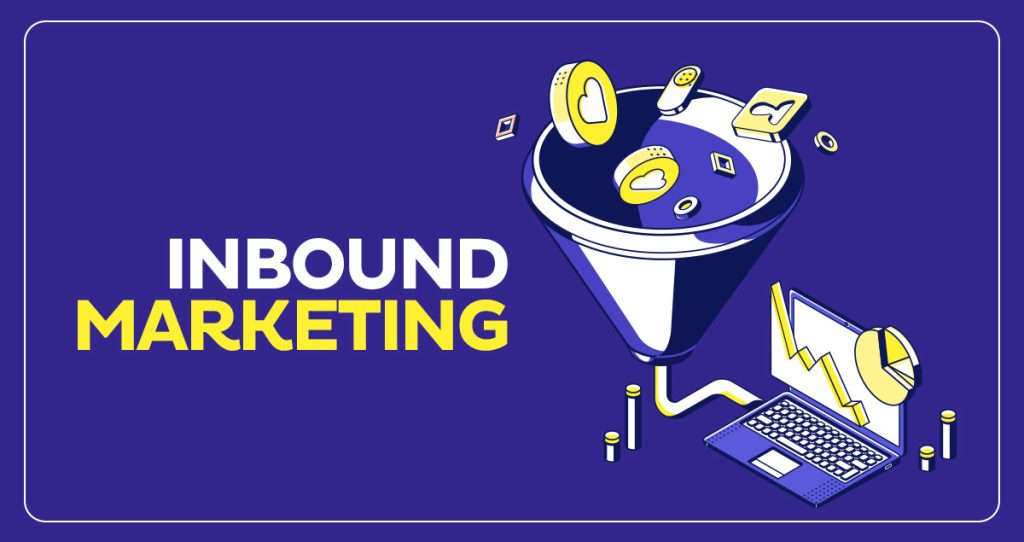Inbound marketing can become the best ally for SMEs. In addition to being a non-intrusive technique, which allows users to be reached in a different way and, above all, to give them added value, it does not require large investments. Entrepreneurs thus find a solution to their constant worries about whether their investment in marketing will ultimately be profitable or not. You want to know more?
Quick Links
SMEs that have just arrived in the online world opt for traditional payment channels to attract the attention of users, gain traffic and get more leads. However, on many occasions, despite obtaining good numbers, there is finally no conversion. Is inbound marketing the solution? Although it is preferable to opt for a multiple strategy (combining traditional marketing with attraction marketing), the truth is that for SMEs, inbound allows them to have their own channel of traffic, leads and customers.
The main reasons to do inbound marketing in your SME
- Saving. Unlike other techniques, inbound marketing is based on providing value to customers through quality content, mainly. Writing articles, creating videos or infographics are tasks that require time but it is not necessary to have a large budget. In fact, the content can be made by the entrepreneurs themselves or by hired professionals, which does require an investment but less than what you could spend on advertising.
- Not intrusive. Users are constantly “bombarded” by traditional channels. The online market is saturated with advertising, so inbound marketing makes a difference. By going beyond the sale, customers will not only learn details about your products or services, they will also enjoy other content that is of interest to them.
- More efficient. Many of the traditional techniques manage to arouse the interest of the user but we later discover that they do not really have a need for our solutions. With inbound marketing, SMEs can obtain a greater number of qualified leads; the conversion rate grows because we address people who have that need or problem and we can offer them the solution.
- Better loyalty. Inbound marketing does not end when a sale is made. After it, you have to continue adding value: offer an after-sales service, special newsletters for clients as well as be attentive to special occasions such as important dates or relevant news that are closely linked to them. Thus, the relationship is strengthened and customers will repeat their experience in our SME.
- Durable content over time. Despite the fact that website content creation requires a lot of time to always offer the highest possible quality, everything we create will remain on the Internet, on our blog or on social networks and will be in constant circulation. We do not create “throwaway” content, but it will continue to work and, consequently, traffic and leads will also grow.
- Visits in continuous growth. Linked to the above, inbound marketing is a technique of attracting long-term customers. Web traffic continues to grow thanks to the positioning of our content, just as it happens if we share it on social networks. If our profiles grow, there will be more options for our content to be consumed and therefore, we will also achieve more traffic.
- Know the acquisition funnel. SMEs can identify how customer attraction has occurred and how many visits or leads are necessary to obtain a purchase. This will be possible when we have a considerable number of visits.
Inbound Marketing in energy companies
The power of content marketing, the essence of inbound marketing, is to create and offer valuable information to our potential customers. Information that resolves doubts, that provides solutions, that keeps our target audience well informed about the sector. Along the way, it will position us as experts and make us an obligatory reference reference, thereby generating the attraction we are looking for. The only condition is not to try to sell through them. By doing so, we will lose all its seduction capacity.
The commercial process in BTB companies in the energy sector
As in other sectors, the energy sector has its characteristics and peculiarities. As in other sectors, this singularity is given by the type of product/service that is marketed and the environment in which this happens.
But what specific characteristics do we find in it?
The processes are fundamentally based on rational criteria: who offers me a better service and at a lower price.
- The type of products and services that are sold are usually complex and costly, which complicates decision-making and makes sales processes very long.
- Our proposals should be aimed at: increasing sales, reducing costs or time, increasing ROI, increasing or generating efficiencies or outsourcing activities.
How to integrate Instagram into an Inbound Marketing strategy
- Our proposals must justify and demonstrate that we are capable of helping the company, qualitatively and above all quantitatively.
- Companies-clients in this sector-business model only buy what they need to continue their activity, grow, save costs or improve their efficiency.
In this type of market, the main job of B2B Inbound Marketing is to minimize the perceived risk and gain customer trust.
Approximately 70% of B2B purchasing decisions are made online. Before even taking the step of contacting our company. By the time our potential buyer decides to act and contact us, they have probably already made a pre-selection of providers that can help them.
Therefore, if we know that our potential client studies and analyzes all the information online and based on it establishes a pre-selection of providers, it is clear that, if our content does not exist on the network or is not well positioned, it will be difficult. let them find us. At least if we want to be part of that 70%.

